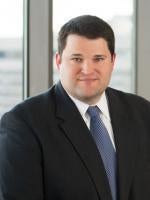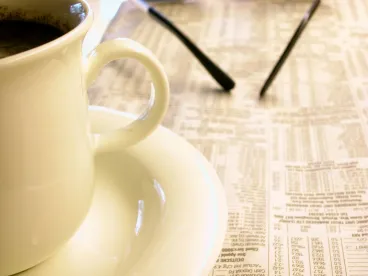The First Circuit recently added to the increasingly ambiguous personal benefit requirement, finding that an alleged friendship and promises for free “wine, steak, and visits to a massage parlor” were enough to support a misappropriation theory of liability for insider trading. United States v. Parigian, — F.3d —, No. 15-1994, 2016 WL 3027702, at *2 (1st Cir. May 26, 2016). As highlighted in previous posts, the Second and Ninth Circuits have interpreted the personal benefit requirement differently, and in January, the Supreme Court granted certiorari to review the issue.
Parigian pleaded guilty to criminal securities fraud on the condition that he could appeal the denial of his motion to dismiss the superseding indictment for failing to allege a crime. Id. at *1. The indictment alleged that Parigian’s golfing buddy, Eric McPhail, provided nonpublic information to Parigian that McPhail had received from a corporate insider. Id. at *1–2. McPhail was not alleged to have engaged in any trading himself; instead, he was compensated for the information “with wine, steak, and visits to a massage parlor.” Id. at *2. Parigian argued the indictment failed to properly allege a “misappropriation” theory of liability for insider trading because, among other things, there was no personal benefit to McPhail. Id. at *3.
In Dirks v. SEC, 463 U.S. 646, 662 (1983), the Supreme Court ruled that the tippee in a traditional insider trading scheme cannot be held liable unless the insider “will benefit, directly or indirectly, from his disclosure.” The First Circuit has, by its own admission, “dodged the question” of whether “such a benefit need be proven in a misappropriation.” Parigian, 2016 WL 3027702, at *7. Instead, the First Circuit has twice considered the issue and determined that it was satisfied, if required, under the facts of those cases. Id. It was satisfied, the court said, because in one case the misappropriator and tippee were “business and social friends with reciprocal interests” and in the other case because “the mere giving of a gift to a relative or friend is . . . sufficient.” Id.
Although the court acknowledged the more recent decisions of the Second Circuit and the Ninth Circuit, the former holding that objective proof of a potential pecuniary gain is necessary and the latter holding that evidence of a close personal relationship is enough, the court refused to stray from its own precedent. Id. at *8. Under that precedent, the indictment adequately alleged a personal benefit because of the “friendship between McPhail and Parigian plus an expectation that the tippees would treat McPhail to a golf outing and assorted luxury entertainment.” Id.
Further clarity will have to wait for the Supreme Court’s decision next term.





 />i
/>i

